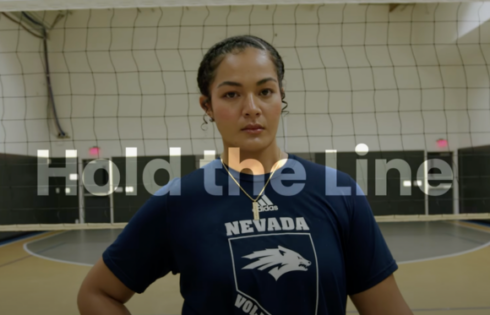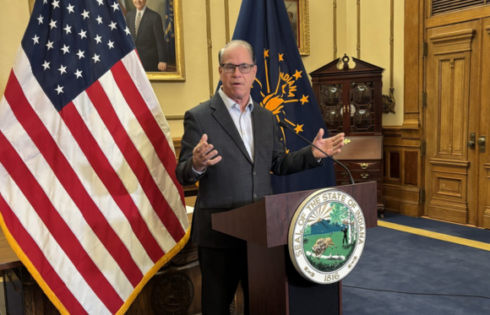
With more than 350 college presidents across the nation signing an open letter to D.C. politicians calling for strict gun control measures, one might think all higher education educators think alike.
But not everyone in the academe believes in over-the-top gun control.
Edward Erler, a noted constitutional law scholar and professor of political science at California State University San Bernardino, delivered a lecture in mid-February at Hillsdale College in which he defended Americans’ Second Amendment rights.
Portions of an adaptation of his talk are reprinted below with permission from Imprimis, a publication of Hillsdale College:
We are currently mired in a frantic debate about the rights of gun owners. One example should suffice to prove that the debate has become hysterical: Second Amendment supporters, one prominent but less than articulate member of Congress alleges, have become “enablers of mass murder.”
… The shooters in Arizona, Colorado, and Newtown were mentally ill persons who, by all accounts, should have been incarcerated. Even the Los Angeles Times admits that “there is a connection between mental illness and mass murder.” But the same progressives who advocate gun control also oppose the involuntary incarceration of mentally ill people who, in the case of these mass shootings, posed obvious dangers to society before they committed their horrendous acts of violence. From the point of view of the progressives who oppose involuntary incarceration of the mentally ill—you can thank the ACLU and like-minded organizations—it is better to disarm the entire population, and deprive them of their constitutional freedoms, than to incarcerate a few mentally ill persons who are prone to engage in violent crimes.
And we must be clear—the Second Amendment is not about assault weapons, hunting, or sport shooting. It is about something more fundamental. It reaches to the heart of constitutional principles—it reaches to first principles. A favorite refrain of thoughtful political writers during America’s founding era held that a frequent recurrence to first principles was an indispensable means of preserving free government—and so it is.
The Second Amendment reads as follows: “A well regulated Militia, being necessary to the security of a free State, the right of the people to keep and bear Arms, shall not be infringed.”…
The Second Amendment is unique among the amendments in the Bill of Rights, in that it contains a preface explaining the reason for the right protected: Militias are necessary for the security of a free state. We cannot read the words “free State” here as a reference to the several states that make up the Union. The frequent use of the phrase “free State” in the founding era makes it abundantly clear that it means a non-tyrannical or non-despotic state. Justice Antonin Scalia, writing for the majority in the case of District of Columbia v. Heller (2008), rightly remarked that the term and its “close variations” were “terms of art in 18th-century political discourse, meaning a free country or free polity.”
… Madison frequently stated that all “just and free government” is derived from social compact—the idea embodied in the Declaration of Independence, which notes that the “just powers” of government are derived “from the consent of the governed.” Social compact, wrote Madison, “contemplates a certain number of individuals as meeting and agreeing to form one political society, in order that the rights, the safety, and the interests of each may be under the safeguard of the whole.” The rights to be protected by the political society are not created by government—they exist by nature—although governments are necessary to secure them. Thus political society exists to secure the equal protection of the equal rights of all who consent to be governed. This is the original understanding of what we know today as “equal protection of the laws”—the equal protection of equal rights.
Each person who consents to become a member of civil society thus enjoys the equal protection of his own rights, while at the same time incurring the obligation to protect the rights of his fellow citizens. In the first instance, then, the people are a militia, formed for the mutual protection of equal rights. This makes it impossible to mistake both the meaning and the vital importance of the Second Amendment: The whole people are the militia, and disarming the people dissolves their moral and political existence.
… Furthermore, the Declaration specifies that when government becomes destructive of the ends for which it is established—the “Safety and Happiness” of the people—then “it is the Right of the People to alter or to abolish it, and to institute new Government.” This is what has become known as the right of revolution, an essential ingredient of the social compact and a right which is always reserved to the people. The people can never cede or delegate this ultimate expression of sovereign power. Thus, in a very important sense, the right of revolution (or even its threat) is the right that guarantees every other right. And if the people have this right as an indefeasible aspect of their sovereignty, then, by necessity, the people also have a right to the means to revolution. Only an armed people are a sovereign people, and only an armed people are a free people—the people are indeed a militia.
CLICK HERE to Like The College Fix on Facebook.
IMAGE: Robert Huffstutter/Flickr





Please join the conversation about our stories on Facebook, Twitter, Instagram, Reddit, MeWe, Rumble, Gab, Minds and Gettr.